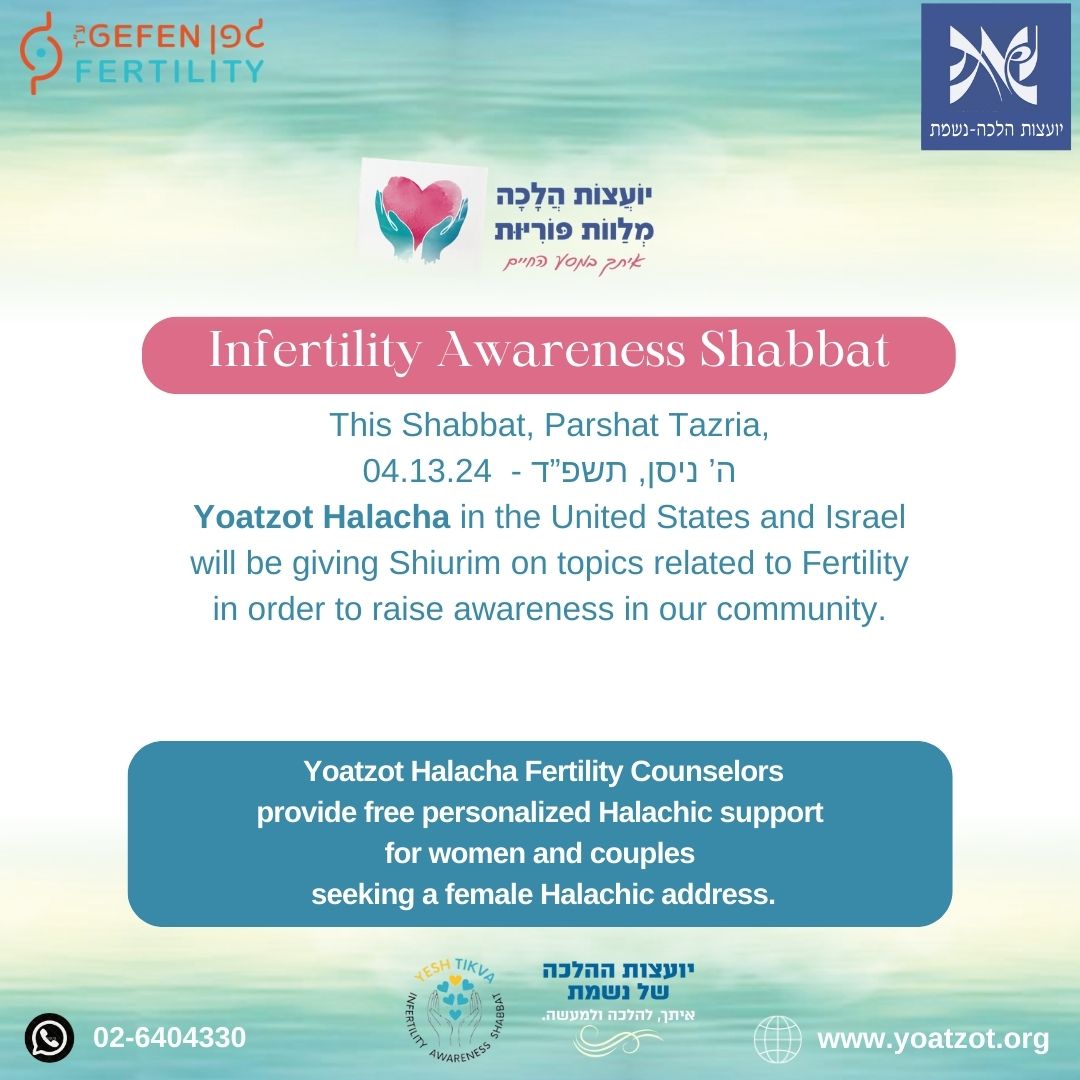Pipelle exam in clean days
23 July, 2020
 Question:
Question:I am 49 years old and have a conventional IUD. Recently I started spotting between periods. The doctor said my hormone levels are still fine. I am not yet in menopause or early menopause. He did a hysteroscopy and found a polyp in my uterus. Yesterday, the doctor conducted a “pipelle” exam and afterwards I was spotting. This was on day 4 of my 7 clean days. Am I a niddah from the spotting? I asked the doctor and he said “maybe”.
Also while this polyp issue is being resolved and I am spotting between periods, what can I do to minimize being in a frequent state of niddah?
Answer:Any staining found after the pipelle exam may be attributed to trauma and does not invalidate the clean days. You may omit bedikot until the staining subsides but should make sure to perform one final bedikah on day 7. If you are still staining on day 7, as long you performed daily bedikot on days 1-3 of the clean days, you may delay your final bedikah until day 9 if necessary. In that case, your days 3 and 9 would become your new days 1 and 7. If you didn’t perform any bedikot beyond day 1, and you are unable to get an acceptable bedikah on day 7, unfortunately you would have to restart your 7 clean days.
Going forward, we recommend reviewing the laws of ketamim, since not all staining will render a woman niddah. As long as you do not experience an actual flow (comparable to a period), you may take precautions against becoming niddah from this staining by wearing colored underwear and waiting at least a few seconds (ideally 15 seconds) after urinating before wiping. See our page on stains for more details.
Please feel free to get back to us with any further questions.
B’hatzlacha!
This response has been updated to reflect the rulings of our current Rabbinic Supervisor, Rav Kenneth Auman, regarding waiting before wiping.
This internet service does not preclude, override or replace the psak of any rabbinical authority. It is the responsibility of the questioner to inform us of any previous consultation or ruling. As even slight variation in circumstances may have Halachic consequences, views expressed concerning one case may not be applied to other, seemingly similar cases. All health and health-related information contained within Nishmat's Women's Health & Halacha Web site is intended to be general in nature and should not be used as a substitute for consulting with your health care professional. The advice is intended to offer a basis for individuals to discuss their medical condition with their health care provider but not individual advice. Although every effort is made to ensure that the material within Nishmat's Women's Health & Halacha Web site is accurate and timely, it is provided for the convenience of the Web site user but should not be considered official. Advice for actual medical practice should be obtained from a licensed health care professional.
For further questions or comments: 
The Nishmat Women's Health and Halacha Site is a public service of Nishmat, The Jeanie Schottenstein Center for Advanced Torah Study for Women. This project and others like it are made possible by contributions from people like you. If you have benefited from the service, and wish to enable us to help others, click here to donate.
Users of Internet filtering services: This site discusses sensitive subjects that some services filter without visual indication. A page that appears 100% complete might actually be missing critical Jewish-law or medical information. To ensure that you view the pages accurately, ask the filtering service to whitelist all pages under yoatzot.org.






 Question:
Question:







